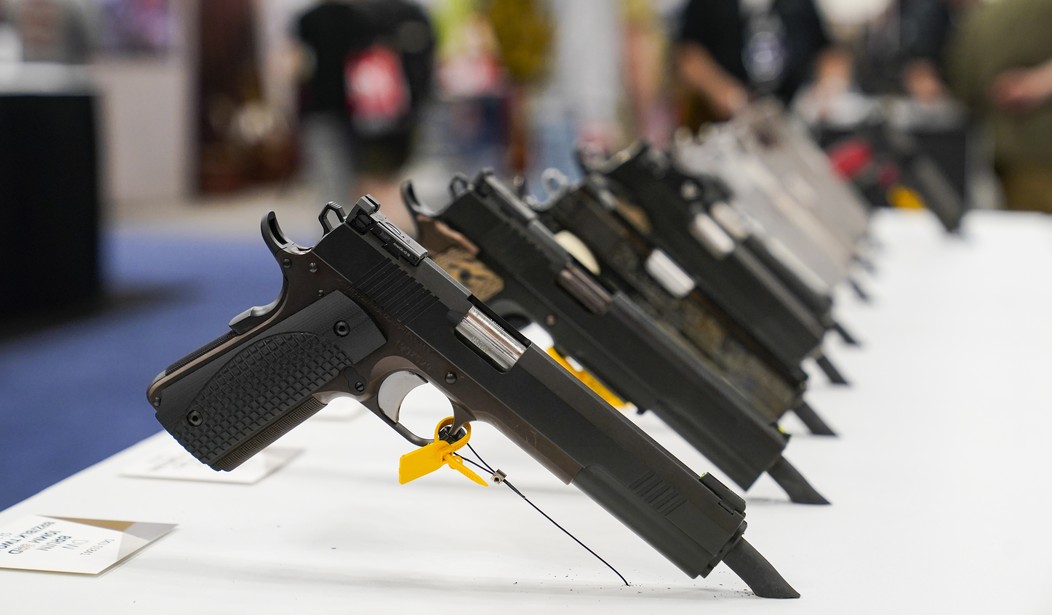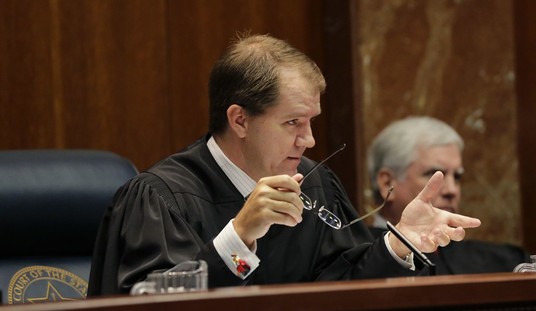The Third Circuit Court of Appeals has previously said that a Pennsylvania man's guilty plea for falsifying his income on a food stamp application shouldn't have led to the loss of his Second Amendment rights, arguing that the current federal statute is unconstitutional, at least in some circumstances.
Now another Pennsylvania resident is hoping to use the decision in Range v. Garland to clear him of charges of being a felon in possession of a firearm, but the Department of Justice argued on Wednesday that there are significant differences between the two men.
Stephen Becker, an attorney for Joshua Reichenbach, 42, said his client had repaid his debt to society by serving his prison sentence.
“At the time Reichenbach possessed the firearm at issue, he was not serving any sentence, imprisonment, parole, supervised release or otherwise,” he said. He cited a separate case where the Third Circuit ruled it was unconstitutional to bar nonviolent felons from gun ownership.
In that case, Bryan Range — who had pleaded guilty to making a false statement to obtain food stamps in 1995 — had his Second Amendment right to bear arms restored since his crime was nonviolent. Notably, while the crime was punishable by up to five years in prison, Range didn’t serve any time.
But Assistant U.S. Department of Justice Attorney Patrick Bannon, arguing for the Department of Justice, said that, unlike Range, Reichenbach’s history includes an assault charge and disorderly conduct charge.
Reichenbach also holds five past felony drug convictions in Pennsylvania: four for planning to sell or deliver illegal drugs, and one for conspiracy to possess illegal drugs.
“We only had a year since he's been released from prison before he went out and obtained a firearm illegally, and then, when he was confronted about it by police, tried to run away and throw the firearm off to the side before he was arrested,” Bannon pointed out.
Bannon also noted that Reichenbach popped up on law enforcement's radar through a social media post showing Reichenbach with a gun and comments about “stick[ing] someone up,” and “I got the strap," which the DOJ attorney argued was further sign of Reichenbach's dangerousness.
U.S. Circuit Judge Peter Phipps noted that for Reichenbach had a much longer rap sheet than Range Wednesday.
“I don't think it does get higher than his criminal history score,” the Donald Trump appointee said.
Nevertheless, the judge showed interest in the defendant’s argument.
“When a state incarcerates someone, they do so for many reasons, and some of those reasons include keeping the rest of society safe from that person. But then when they release that person, they've released them back into society,” the judge said. “It's hard to say what the release of that person shows.”
He questioned whether the release of a person signaled they showed no violent threat to the public.
Becker then emphasized that the founding fathers would say that barring someone from the right to have a gun after releasing them from prison was clearly against the Second Amendment.
“They didn't concern themselves with what would happen if somebody was released from prison. They didn't have supervision,” he said.
That may be the case, but the Founding Fathers didn't disarm individuals through protective orders or restraining orders, and the Supreme Court has upheld modern day statutes that do so, at least in some circumstances where a judge has reason to believe that the individual in question poses a threat to themselves or others.
The big legal question at the moment is whether there needs to be an individualized finding of dangerousness before someone can be prohibited from keeping and bearing arms, or whether a conviction for any felony-level offense or crime punishable by more than a year in prison is enough to deprive someone of their Second Amendment rights.
Range would have been a good opportunity for the Supreme Court to answer that question, but the DOJ decided not to appeal the Third Circuit's decision restoring Bryan Range's right to keep and bear arms. I can't fault Pam Bondi and the DOJ for its decision. I believe it was the right thing to do for Bryan Range, even if it leaves unanswered, at least for now, whether Section 922 (g) 1 is constitutional or not.
SCOTUS will still have the chance to address this issue in the coming months with two other prohibited persons cases. The DOJ has until June 11 to respond to the cert petition in Vincent v. Bondi; a case involving Melynda Vincent, who's not allowed to purchase or possess a firearm because of a single non-violent felony conviction for trying to pass a bad check almost 20 years ago. The Tenth Circuit has ruled against Vincent regaining her Second Amendment rights despite the fact that since writing that bad check she's turned her life around and now serves as a licensed clinical social worker.
A cert petition in U.S. v. Daniels could also be filed with the Supreme Court next month. Patrick Darnell Daniels was sentenced to more than 40 months in prison for possessing a firearm as an admitted user of marijuana. The Fifth Circuit overturned that conviction, opining that while the historical tradition of firearms may allow for prohibitions on their use and possession while intoxicated, it does not allow for someone to be deprived of their right to keep and carry a gun simply because they use intoxicating substances. In that case it will once again be up to the DOJ to appeal to the Supreme Court, and at this point its unclear whether or not that will happen.
At the very least, I hope SCOTUS will grant cert to Melynda Vincent's case. In my opinion, she absolutely deserves to have her Second Amendment rights restored, but her case is also a pretty good vehicle for the Court to expand on the Rahimi decision and provide some concrete answers about what kind of criminal activities can lead to the loss of our 2A rights... and perhaps for how long they can be lost as well.









